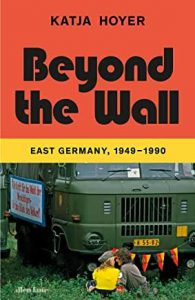“This project was hugely successful, perhaps one of the most effective aid projects ever conducted.” What would you guess this to be?
The line is from Katja Hoyer’s Beyond The Wall: East Germany 1949-1990. The context was the fact that the GDR ran out of coffee in 1977. “Afternoon coffee had become a daily ritual, not just comforting but essential as a psychological crutch,” Hoyer writes. It signalled stability and material comfort after the deprivations the middle-aged and older generation had experienced as young adults. The commodities crisis and the GDR’s chronic lack of foreign exchange meant the country couldn’t import any more coffee. What to do?
The solution was to come to a fraternal socialist arrangement with Vietnam, desperately poor after its own conflict. “East Germany could help the brother state rebuild itself while solving its own coffee problem.” GDR provided an enormous aid package and helped build massive infrastructure including a hydropower plant, and in return would get half of Vietnam’s coffee output for 20 years.
Vietnam now produces 20 million 60kg bags of coffee a year – almost all exported – in an industry employing 2.6 million people, the book reports. Unfortunately for East Germany, the coffee plants didn’t produce their first beans until 1990, too late to save the Communist regime. The coffee shortage was a striking illustration of the economy’s long-term unsustainability. It was too small and unproductive to continue to provide enough material and consumerist comforts to keep the population satisfied.
For a few years in the late 1980s a small part of my job involved monitoring the Soviet economy during the era of perestroika. The best estimates in the west (the CIA’s) over-estimated the strength of the planned Communist economies in the years running up to 1989. Extensive borrowing – and for the USSR itself, resource exports – was needed to fund enough consumption for political stability, given low productivity. Beyond The Wall is very interesting in its highlighting of the social benefits of the stability and the growing comforts East Germany provided its population; for a (significant) minority life there was intolerable, but for the majority it had some compensations. Until it didn’t.

